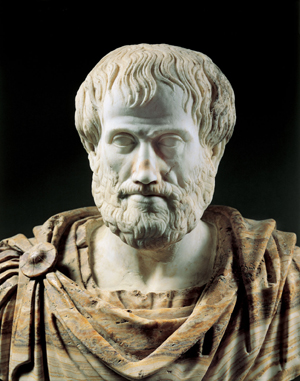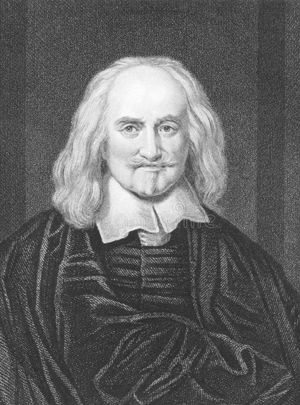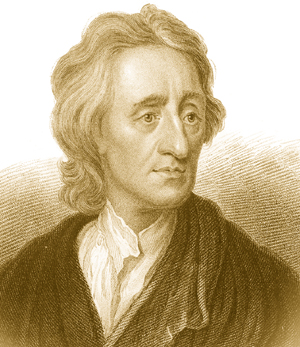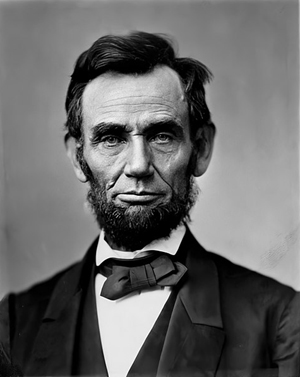| Principles of Government
In 1972, for the first time, many 18-year-olds were allowed
to vote. Perhaps waiting in line to vote allowed time for reflection. Why
am I doing this? Will it make a difference? Is government really necessary?
What does government have to do with my life?
While most of us realize that government is necessary,
people have asked basic questions about the institution of government for
centuries. What is the proper function of government? What form of government
serves best? Where or why did government originate? Many scholars have
written much about these issues. This text will help answer some of these
basic questions.
The State
Aristotle, a scholar in ancient Greece, was one
of the first students of government. He studied the polis, the ancient
Greek city-state. Many terms and concepts of government, such as politics,
democracy, and republic, originated in ancient
Greece and Rome.
The familiar terms country and state have basically the
same meaning. The word state comes from a form of the Latin word stare,
meaning “to stand.” Today the word state precisely identifies
a political community that occupies a definite territory and has an organized
government with the power to make and enforce laws without approval from
any higher authority. The United States is one of more than 160 states
in the world today. |
|
 |
To citizens of the United States, the term state sometimes
has a different meaning. The name United States was first used in 1776
when the thirteen British colonies became states by declaring their independence.
At that time, each state thought of itself as a country. Even though the
states later joined together as one nation under the Constitution, the
term state continued to be used to describe the main political units within
the United States.
The term nation is often used to describe an independent
state or country. Strictly speaking, however, a nation is
any sizable group of people who are united by common bonds of race, language,
custom, tradition, and, sometimes, religion.
Usually the territorial boundaries of modern states and
those of nations are the same. For example, although not all citizens of
France are of French descent, the territories of both the nation of France
and the state of France coincide. The term nation-state is
often used to describe such a country.
Not all groups that consider themselves to be nations
have their own states. Eastern Canada, for example, includes many French-speaking
Catholics who prefer to follow French culture and traditions rather than
those of the English-speaking non-Catholic majority of Canada. Some of
these people want to break away from Canada and establish their own state.
On the other hand, in Africa the populations of some national groups are
divided among several African states, the result of artificial borders
established during European colonialism. The popular use of the term nation,
however, fits the standard definition of state. For this reason this text
will use the terms state and nation interchangeably
Essential Features of a State
The states that make up today’s political world share
four essential features: population, territory, sovereignty, and government.
Population
The most obvious essential for a state is people. The
nature of a state’s population affects its stability. States where the
population shares a general political and social consensus, or agreement
about basic beliefs, have the most stable governments. For example, most
Americans share basic beliefs about the value of democratic government.
Another way that population affects the political organization
of a state is through its mobility. Millions of Americans change residences
each year. As a result, political power is slowly changing and being modified.
A major shift in population from the North and East to the South and West
caused Southern and Western states to gain representatives in Congress
based on the census, while some states in the North and East lost representation.
The movement of some of the population from inner cities to suburban areas
resulted in a similar shift in political power.
Territory
A state has established boundaries. The United States’
continental boundaries are the Atlantic and Pacific Oceans and recognized
borders with Canada and Mexico.
The exact location or shape of political boundaries is
often a source of conflict among states. Territorial boundaries may change
as a result of war, negotiations, or purchase. The territory of the United
States, like that of some other states, has grown considerably since the
original thirteen states declared their independence. By purchase, negotiation,
and war the United States extended its territory to the shores of the Pacific
Ocean.
Sovereignty
The key characteristic of a state is its sovereignty.
Political sovereignty means that the state has supreme and
absolute authority within its territorial boundaries. It has complete independence,
and complete power to make laws, shape foreign policy, and determine its
own course of action. In theory, at least, no state has the right to interfere
with the internal affairs of another state.
Because every state is considered sovereign, every state
is equal with respect to legal rights and duties—at least in theory. In
practice, of course, states with great economic strength and military capabilities
have more power than other states.
Government
Every state has some form of government. Government
is the institution through which the state maintains social order, provides
public services, and enforces decisions that are binding on all people
living within the state.
What are the essential features
of a state?
Theories of the Origin of the
State
How did the state or government come to be? No one knows
precisely how or why people created the earliest governments. Many scholars
have constructed theories that attempt to explain the origin of the state.
Evolutionary Theory
Some scholars believe that the state evolved from the
family. This is the basis of the evolutionary theory of government
origin. The head of the primitive family was the authority that served
as a government.An extended family might include hundreds of people. Abraham’s
descendants in the Old Testament of the Bible are an example of the emergence
of this kind of rule. Gradually the large extended family needed more organization.
Force Theory
In the earliest civilizations people worked together to
build walled cities, to control floods, to construct buildings for worship,
and to cooperate in other ways. Leaders issued decrees and soldiers went
to war to protect their city. Some scholars believe that the state was
born of force. The force theory says that government emerged
when all the people of an area were brought under the authority of one
person or group.
Divine Right Theory
The notion that the gods have chosen certain people to
rule by divine right has been important in many civilizations.
The Egyptians, Chinese, and Aztec were among those who believed that their
rulers were either descendants of gods or at least chosen by gods. In Europe
beginning in the 1400s, monarchs often referred to their right to rule
as coming from God. People believed that the state was created by God,
and those who were born to royalty were chosen by God to govern. To oppose
the monarch was to oppose God and was both treason and sin.
Social Contract Theory
| Beginning in the 1600s, Europeans challenged the rule
of sovereigns who ruled by divine right. They were often supported by the
writings of philosophers who believed that the origin of the state was
in a social contract. Thomas Hobbes in England was one of
the first to theorize how the social contract came about.
He wrote that in a “state of nature,” no government existed. Without an
authority to protect one person from another, life was “cruel, brutish,
and short.” By contract, people surrendered to the state the power needed
to maintain order. The state, in turn, agreed to protect its citizens.
Hobbes believed that people did not have the right to break this agreement. |
|
 |
 |
| John Locke took the social contract a step
further. In 1688 the British Parliament forced King James II to flee and
invited William and Mary of Orange to rule. Locke defended Parliament’s
overthrow of the king. He wrote that people were naturally endowed with
the right to life, liberty, and property. To preserve their rights, they
willingly contracted to give power to a governing authority. When government
failed to preserve the rights of the people, the people could justly break
the contract.
Nearly a century later, the American colonies revolted
against King George III. They declared their independence supported by
the political philosophy of natural rights that Locke had written. |
|
What is the origin of government?
The Purposes of Government
Today governments serve several major purposes for the
state: (1) to maintain social order; (2) to provide public services; (3)
to provide for national security and a common defense; and (4) to provide
for and control the economic system. In carrying out these tasks, governments
must make decisions that are binding on all citizens of the state. Government
has the authority to require all individuals to obey these decisions and
the power to punish those who do not obey them.
The decisions of government are authoritative—that is,
they can be enforced upon all of society. Governments derive their authority
from two sources—their legitimacy and their ability to use coercive force.
Legitimacy means the willingness of citizens to obey the government. In
democratic countries legitimacy is based on the consent of the people.
Americans understand that if their elected officials fail to respond to
the interests of the people, they can be voted out of office. Therefore,
the people entrust their government with power.
Coercive force, the second source of government authority,
derives from the police, judicial, and military institutions of government.
Government can force people to pay taxes and can punish offenders by fines
or imprisonment.
Maintaining Social Order
John Locke, writing in Two Treatises of Government
in 1690, explained:
“Men being, as has been said, by Nature, all
free, equal and independent, no one can be put out of this Estate, and
subjected to the Political Power of another, without his own Consent. The
only way whereby any one divests himself of his Natural Liberty, and puts
on the bonds of Civil Society is by agreeing with other Men to joyn and
unite into a Community. . . .”
—John Locke, 1690
According to the social contract theory, people need government
to maintain social order because they have not yet discovered a way to
live in groups without conflict. There are many sources of conflict in
any group. Two people may argue over the boundary line between their properties.
Members of a community may disagree about what is best for the group. In
any group, some members may try to take unfair advantage of others. Conflict
seems to be an inescapable part of group life.
Governments provide ways of resolving conflicts among
group members, helping to maintain social order. Governments have the power
to make and enforce laws. Governments can require people to do things they
might not do voluntarily, such as pay taxes or serve in the army. Governments
also provide structures such as courts to help people resolve disagreements
in an orderly manner.
Without government, civilized life would not be possible.
Government controls and contains conflict between people by placing limits
on what individuals are permitted to do. Government provides a group with
law and order. An effective government allows citizens to plan for the
future, get an education, raise a family, and live orderly lives.
Providing Public Services
Abraham Lincoln identified one purpose of government:
“The legitimate object of government is to
do for a community of people whatever they need to have done but cannot
do at all, or cannot so well do for themselves in their separate and individual
capacities. But in all that people can individually do for themselves,
government ought not to interfere.”
—Abraham Lincoln, 1854
|
|
 |
One of the important purposes of government is to provide
essential services that make community life possible and promote the general
welfare. Governments undertake projects, such as building sewer systems,
that individuals could not or would not do on their own.
Governments also provide an essential service by making
and enforcing laws that promote public health and safety. Government inspectors
check meat and produce to prevent the sale of spoiled food. State legislators
pass laws that require people to pass a driving test.
Providing National Security
A third task of government is to protect the people against
attack by other states or from threats such as terrorism. Protecting its
national security is a major concern of each sovereign state. In today’s
world of nuclear weapons, spy satellites, international terrorists, and
huge armies, the job of providing for the defense and security of the state
is complex.
In addition to protecting the nation from attack, government
handles normal relations with other nations. The United States Constitution
gives our national government a monopoly over our nation’s dealings with
foreign countries. Thus, our national government has the exclusive power
to make treaties with other nations. Government helps to provide economic
security by enacting trade agreements with other countries. Some state
governments maintain informal relations with foreign governments for trade
and cultural purposes. The national government, however, has the power
to limit these arrangements.
Making Economic Decisions
Nations vary greatly in their ability to provide their
citizens with economic opportunities or resources. No country provides
its citizens with everything they need or desire. Even in a wealthy country
like the United States, many people are poorly clothed, housed, and fed.
The problem of scarcity is far greater in many other nations around the
world.
Material scarcity is often the cause of conflict in society.
Countries in which the gap between rich and poor is great may experience
civil unrest. Historically this has been the primary cause of several full-blown
revolutions. For this reason governments often use their power to reduce
the cause of such conflict by intervening in the economic system.
Governments do not limit their intervention to only domestic
necessities. They may intervene in the economic affairs of another nation.
For example, after World War II, the United States provided economic aid
to nations in which it believed economic conditions might foster Communist
revolutions.
Governments pass the laws that determine and control the
economic environment of the nation. Such a function could be as limited
as simply providing a national currency, or it could be as extensive as
controlling every individual’s economic decisions.
Governments also may make choices that distribute benefits
and public services among citizens. For example, the government can make
payments to farmers who raise certain crops or allow tax advantages to
certain industries. The government’s decision to build a veterans’ hospital
in a certain town benefits some of the people and not others. Governments
usually try to stimulate economic growth and stability through controlling
inflation, encouraging trade, and regulating the development of natural
resources.
What are the four main purposes
of government? |



